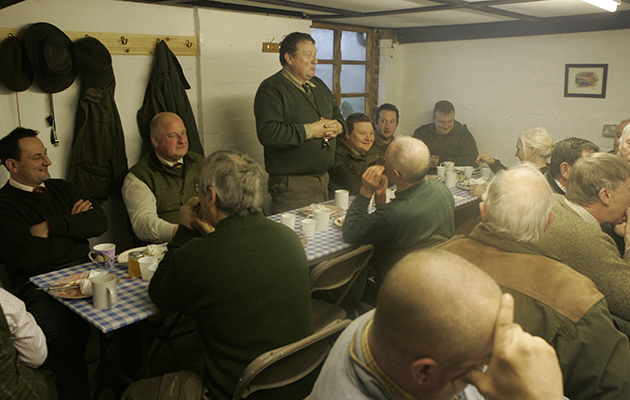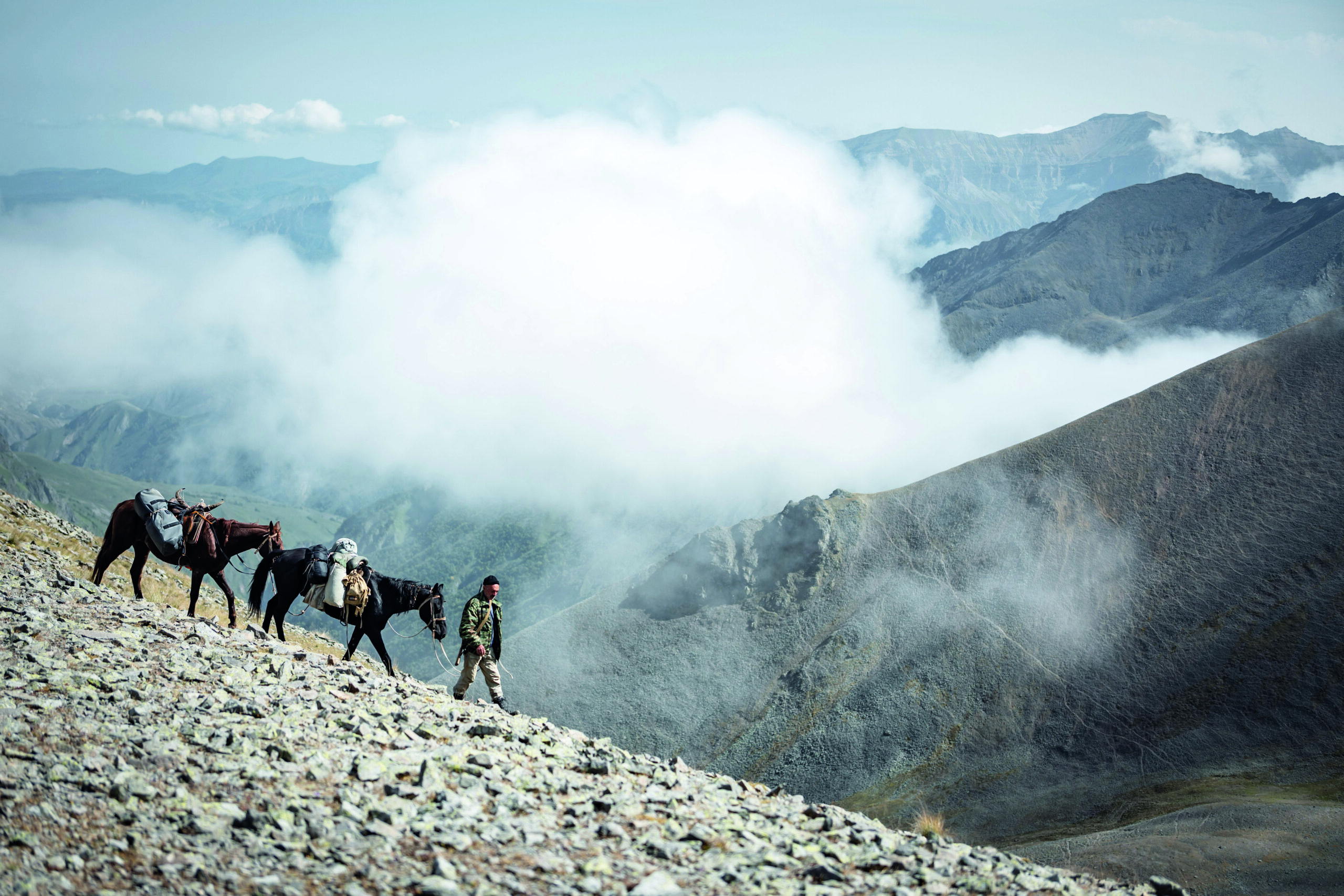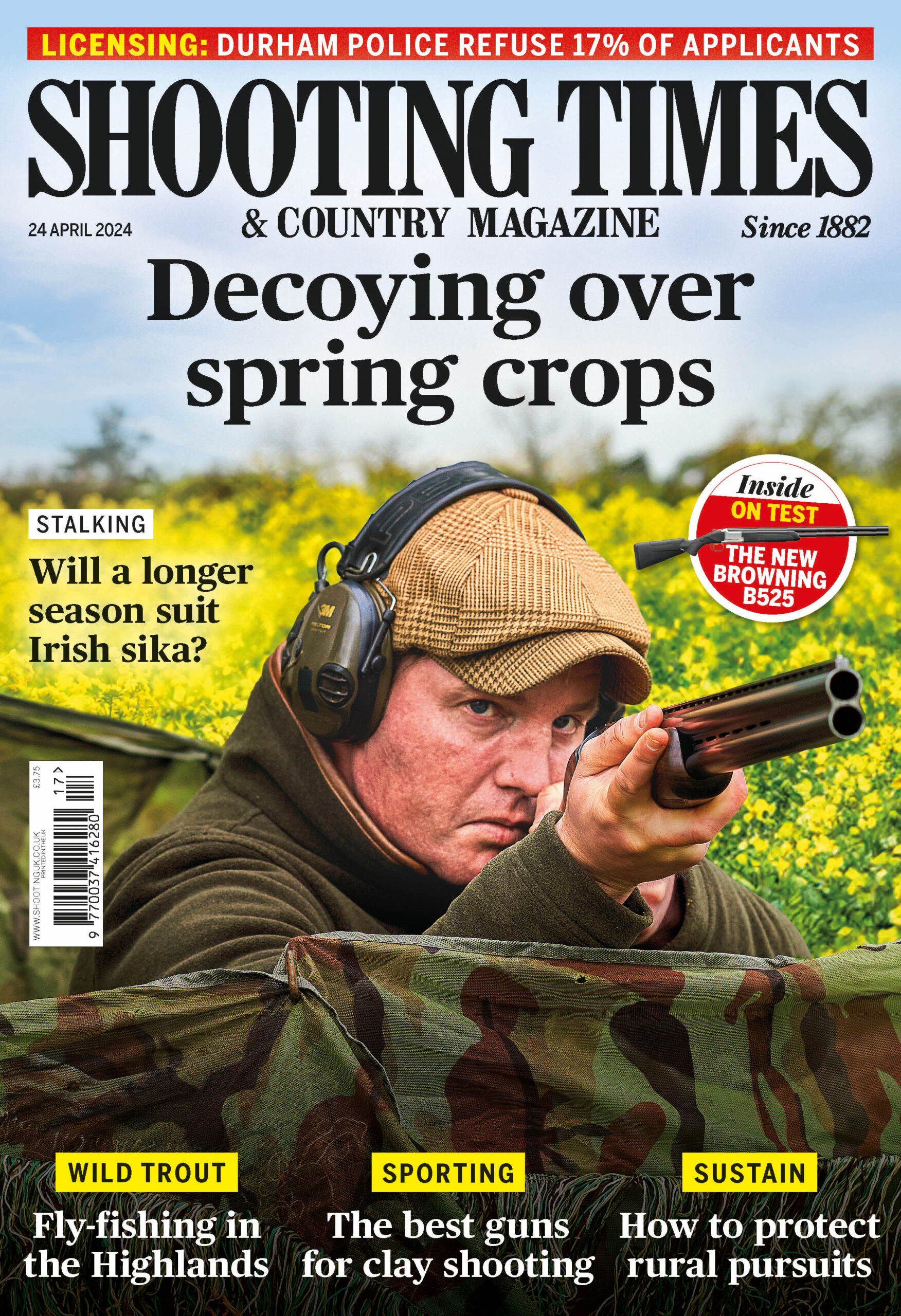How to be a shoot captain
The job of a shoot captain is both stressful and rewarding. Learn from our mistakes and read our tips on how to be a good shoot captain this season.

Like most game shooters, I have been on days that have been run impeccably and others that haven’t. Most local syndicate and DIY shoots seem to be organised by keen, experienced people who often get as much enjoyment out of providing shooting for others as they do from the shooting itself. A shoot captain take on the serious responsibility of providing enjoyment for others. But what exactly do they do?
We have all heard good, bad and indifferent pre-shoot briefings. We have seen strange peg layouts and witnessed guns being moved to ‘better spots’. We have seen woods blanked in, conflabs with keepers and, sometimes, tempers lost when things start to go awry. And after 25 years of game shooting, the role of the shoot captain was still something of a mystery to me when I inherited the job on our shoot.
It all started on a day when I was helping my predecessor with some of his administration.
“Every shoot needs a captain, Mart. Every team needs its leader.”
“Okay, Jules, what are you getting at?”
“Well, you know, work is a problem, I’ve been captain for 10 years now.”
“Your point?”
“I’ve decided to resign.”
It began to dawn on me – I’d been set up. Just prior to this I’d been captain for the day. Jules had been committed elsewhere and I had stepped in to run things. A test. The cunning old fox had laid his trap and I’d stumbled headfirst into it. So after experiencing the job of shoot captain, I thought readers might benefit from hearing about some of the mistakes I’ve made.
Inveterate tardiness
Shoot days almost always start badly for me. No matter how early I get up and no matter how hard I try, circumstances always conspire to make me late. Either one of the dogs will be ill, or the Land Rover won’t start, or the tie that I carefully put out the night before will have gone missing. Something is guaranteed to slow me down.
I’ve progressed beyond the written list that I used to tick off 20 years ago and now I have a mental routine. I start with my head. Hat, scarf, jacket, dog whistle. And so it goes on until I reach my wellies. Have I ever forgotten cartridges? Of course. Haven’t we all?
But then until recently I’d never endured the distractions of being captain. I’d never had to deal with the last-minute apologies for absence, the late phoned request to bring an important guest or the sudden disappearance of my opening speech notes that I was sure I had left next to the computer. So my first piece of advice to any prospective captain is not to be late.
First-day disasters
On my first day as captain we headed off for the first drive. I was leading the beaters and one of our newer members, Simon, had agreed to look after the guns. We set our walkie-talkies and arranged that I would let him know when we were ready. Somehow, Simon contrived to turn off his radio. Then a couple of the beating team had forgotten their sticks. Then one of the beaters walked past with a spaniel that looked to have started in season. I was just about to say something when my mobile phone rang. It was one of the guns who hadn’t turned up for the start of the day. I’d presumed he wasn’t coming and now he was here, late. I sent him up to see Simon and sort out the radio at the same time. I looked around for our walking gun – missing! The phone rang again. It was Simon. He’d left the radio in the car. One of the guns said he couldn’t find his peg, could I advise? Sure, which gun? Number 2. The walking gun! And the stop, where at the end of the wood should he go? I explained. For the second, or was it third time?
Our shoot involves a long uphill walk from the timber hut where we meet before starting the first drive. Before the safety briefing we put £1 each into the sweep and guess the number of shots for the day. A shot rang out, then another. Way up the hill, out of breath and weighed down by gun, cartridges, phone, radio and whistle is not the place to find you’ve forgotten the clicker!

Back to a written list
Running a shoot is not a stress-free hobby. On being appointed captain, I decided to use the five Ps system of organisation: prior planning prevents poor performance. The ex-servicemen amongst you will know that there is a sixth ‘p’ and where it fits. But this is family reading.
BASC produces an excellent shoot captains’ guide. It is a first-rate, wide-ranging source of information and advice. I found it useful to read and then to dip into when problems arose or questions were asked. Trouble is, none of the members have read it.
Members of shoots come up with a plethora of ideas throughout the year. Some are new, some are old. Some are keepers’ tales and some come from old wives. Yes, your members will have as much interest in the sport as you have in producing it for them. In order to be better prepared I read books by the likes of Ian McCall, Archie Coates and John Humphreys and these gave me ideas and a timetable of when to implement them.
Decisions, decisions
Poults versus ex-layers. Hand feeding versus hoppers. Net-roof release pen versus open-top. All had their supporters and in a self-keepered shoot the opinions are plentiful. You also do well to remember that the retired captain is ever present. New ideas are all very well but never let them be seen as a criticism of the previous regime.
Our greatest predation problem is caused by birds of prey. A few years ago we were losing six or seven poults a day to buzzards and a goshawk. We switched to ex-layers and reduced losses but then suffered the problems of straying. We have tried radios, scarecrows, bird scarers, CDs hung from branches and all manner of other tricks. None were very effective. And so the idea of netting the pen with a roof was carried by popular vote.
Divorce and dwindling numbers
DIY shoots rely on the commitment of the guns. Someone needs to do all the preparatory work and look after the birds once released. First problem: one gun moved away to East Anglia, another was made redundant, a third, only in his first season, decided that he no longer had the time. Two, yes two, separated from their wives pending divorces. Things were looking bad.
I organised a meeting for April – early enough to put my ideas into effect. We work to a tight budget. And when I say tight, I mean tight. There are very few places that can produce the quality of shooting that we enjoy at such a modest cost. I wanted to keep those costs down and as we had lost three members I knew that my accounts wouldn’t balance. We either needed more members or to increase subs. In the event we did both.
Successful recruiting
New guns bring benefits and problems. We contacted BASC and within a few weeks had a list of applicants. One or two were experienced, the others less so. All were as keen as mustard. All I had to do was harness their energy and keep the mistakes to a minimum.
Showing prospective members around the shoot was an education in itself. As I described the work we had planned, what we had achieved to date, how the drives worked and what they could expect, I felt a glow of pride. I also quickly realised that I wasn’t just a salesman looking to take well-earned cash from a punter. I was an interviewer. I had a responsibility to ensure that a new member could fit in well with the group. There would be no point in taking on someone who could shoot but who was quite unable to carry a bag of feed. It would be just as unwise to recruit a gun who was fit and strong but who wasn’t safe.

All’s well…
In the end, things worked out well during my first season in charge. We got the birds to wood, feed stored, hoppers filled, one pen netted and straw rides finished. There was even a small contingency fund in the bank to cover any unforeseen problem.
The books had filled my head with ideas. Feed rides, game crops, shelters… But ideas mean work and cost. Making the best of those ideas, providing the finest shooting you possibly can and ensuring everyone enjoys the day is what makes the job both a challenge and a reward in itself.
10 top tips a shoot captain
Before the season starts
1. Share the workload by delegating and involving others.
2. Utilise the knowledge and skills of your fellow guns – it may surprise you what they can turn their hands to.
3. Spread the work throughout the spring and summer, sticking to a monthly plan.
4. Keep comprehensive records of absolutely everything – contact details, phone numbers, insurance cover, shotgun certificate details (including expiry dates)…
5. Set and keep to an expected level of work commitment and record it. Some will graft harder than others but all should be expected to do their bit.
On shoot day
6. Get there early and don’t forget that list.
7. Plan ahead and prepare for all eventualities.
8. Be flexible – if something can go wrong, one day it will.
9. Don’t focus on numbers. The emphasis should be on enjoyment
10. Again, keep records of shots fired, birds killed, how drives went, etc. You will soon forget and records will help you to plan.








